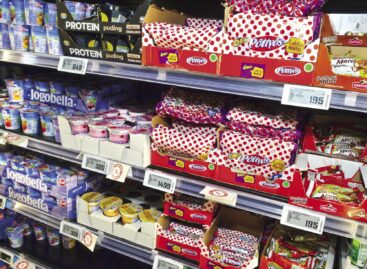Caferia budget shrinks
he average value of in-kind benefits for employees at Hungarian companies fell 10% on a yearly basis in 2011. Many employers rather cut back on cafeteria than dismiss employees.
The average cafeteria budget is HUF 276,000 in 2011, which is 10% less than last year, a recently published survey by Nexon reveals. The government introduced a series of changes to the cafeteria legislation at the beginning of this year. Most importantly, the tax rate will be 16% at certain in-kind benefits, while the tax base is 1.19 times of the value of the benefit – thus the tax burden on these is 19.04%, which is nearly 6% less than in 2010.
But still, companies in general cut back on their cafeteria budgets: according to the survey, the smaller budgets are the result of a more concentrated management of expenditures at businesses. In many cases, employers decided to cut back on in-kind benefits rather than dismissing their staff, the study explains.
The five most popular cafeteria items have remained basically the same as before: meal tickets, holiday vouchers, healthcare contributions, travel passes, and pension fund contributions – these account to more than 87% of the cafeteria scheme.
Relatively low administrative burden is connected with these items, thus making them the most popular among employees, the study notes.
According to the regulation change passed in last November, the most popular of the previous benefits have remained and are charged with 16% income tax based on the super gross amount. Last year the benefits subject to the preferential tax rate had a 25% tax charge, while for example the cold meal voucher or the cultural event voucher had 54%.
Benefits for non-reimbursable home purchasing or building support, vaccination, and the ticket or pass for sports events up to HUF 50,000 per year have remained non-taxable. However, employees opt for such benefits in a very low rate: their proportion come to only 0.2-0.3% within the whole scheme.
The popularity of meal vouchers has been further increased – to 31.7% – by the fact that they can be used for both cold and hot meal purchases.
Due to the high tax rate, culture and gift vouchers have practically disappeared from employees’ choices.
Although the amount of pension fund contributions has been decreased 3% for the last couple of years, it is still the fifth most popular in-kind benefit, the study says. If the value of in-kind benefits were not limited, voluntary pension fund payments would be the perfect compensation tool to improve the health condition of employees, and to increase the amount added to the state pension when employees retire, the study concludes.
Related news
Related news
Half of employees do not support salary transparency
🎧 Hallgasd a cikket: Lejátszás Szünet Folytatás Leállítás Nyelv: Auto…
Read more >There is a slice for everyone
🎧 Hallgasd a cikket: Lejátszás Szünet Folytatás Leállítás Nyelv: Auto…
Read more >





